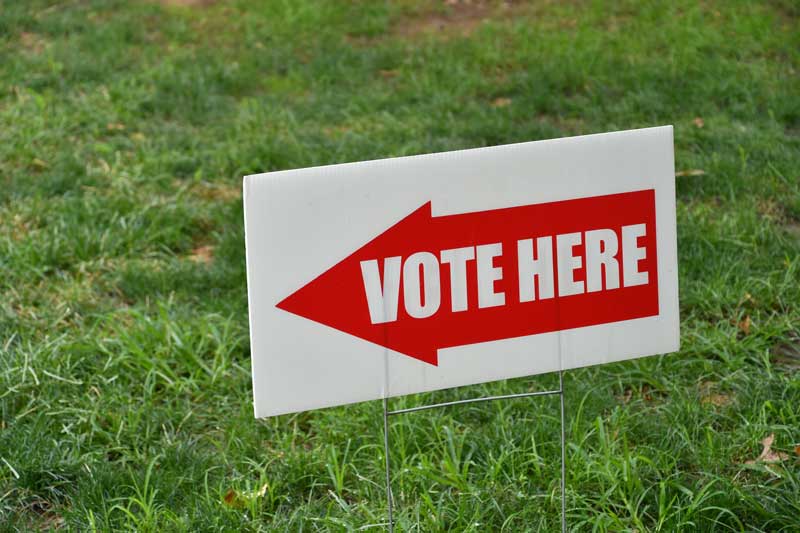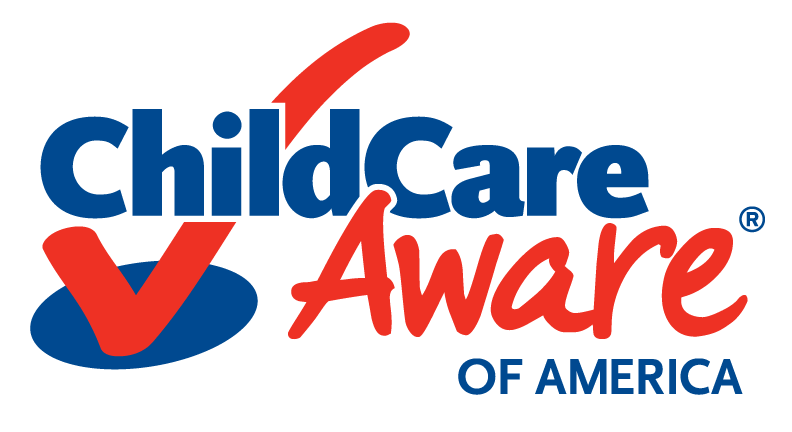
Ask Your Candidates about Child Care
This November, the elections are an opportunity in every state to vote for candidates to public office at multiple levels of government, including members of the U.S. House and Senate, governors, and state and local officials. The winners of these elections will be positioned to make public policy decisions that directly impact our current circumstances and those of future generations. The effects of the COVID-19 pandemic highlighted the vital role child care plays for millions of children and families. In addition, it has underscored the precariousness of high-quality, affordable and accessible child care for all families. It has never been more important to ask candidates for clarity on their policy plans for child care.
At Child Care Aware® of America (CCAoA), we have a vision that every family in the United States has access to a high-quality, affordable child care system. Child care is an integral part of children’s growth, development and educational advancement and creates positive economic impact for families and communities. Continuing to foster and grow these positive impacts requires comprehensive policies that are equity-driven, child-centered, family-engaged and community-focused. CCAoA uses these four policy goals as our guiding principles to ensure policymakers are engaged in fixing our broken child care system so it serves all constituents. These policy goals are explored in-depth in CCAoA’s 2020-2022 Policy Agenda.
How to use this guide:
Elections are an opportunity to clarify the issues and ensure that our public officials understand what policy changes are needed to support accessible, affordable child care for all families. This guide is closely aligned to CCAoA’s 2020-2022 Policy Agenda and is designed to help voters ask questions to learn more about candidates’ stances on child care policy and make informed decisions at the ballot box. Over the course of a campaign, candidates will typically have a number of in-person and virtual events where questions like these can be asked. Social media can also be a great venue for these discussions.
If you represent or work with a 501(c)3 nonprofit organization, learn more here about how to talk to candidates during an election.
You can click on the questions below to learn more about the policy background for each of them and the approaches that CCAoA supports for the issues they address:
- What child care policies do you support that are equity-driven?
Background: Equitable early childhood education must not perpetuate – but instead reverse – the structural and institutional racism, poverty and lack of opportunity that exists in the U.S. Unfortunately, COVID-19 and its effects on our economy and society exacerbated the inequalities that exist in the child care system.
Policies that support a more equitable child care system expand access to quality care that sustains the cultural diversity of our communities and serves the needs of all families, including those who work nontraditional hours. A more equitable child care system allows early childhood educators in underserved communities to enter the profession by delivering business support, fair subsidies and other resources to all child care providers, including home-based family child care (FCC) providers and family, friend, and neighbor (FFN) caregivers. CCAoA strongly believes in supporting Child Care Resource and Referral (CCR&Rs) agencies, center-based programs and home-based providers by helping them start their businesses and meet critical health, safety, and quality standards. Child care educators—who are generally women and disproportionately women of color and immigrant women—were among the most impacted by the pandemic. To achieve a more equitable child care system, we must provide fair compensation and benefits to child care providers. Failure to support them will leave providers without a workforce and families without providers on which to rely.
- What will you do to support child care policies that are child-centered?
Background: Quality early childhood education nurtures the whole child, including their social, emotional, physical and cognitive development. Early childhood educators (ECEs) take a holistic approach to educating young children, building close, positive relationships with each child in their care. Studies show that access to high-quality care can help close the achievement gap, leading to better educational outcomes throughout schooling. ECEs also naturally interface with the families of the children they care for and the experiences these families have with food insecurity, housing insecurity and health care. In addition, ECEs work to ensure their environments are safe by preparing their facilities to handle emergencies and natural disasters, and by improving infrastructure. Long-term analyses suggest that enrollment in quality early childhood education can increase adult earnings and lead to better health outcomes.
Children deserve a safe place to grow and learn and we must work toward a child care system with the health and safety of children as a baseline. CCAoA strongly believes that state and federal efforts to deregulate child care in order to “fix” the supply crisis put children’s health and safety at risk. Basic legal or regulatory requirements—including those relating to health, safety, and quality—are critical in ensuring that children are cared for in environments that nurture their healthy growth and development. Child-centered policies will maintain the strong health and safety standards that have been instrumental to supporting the wellbeing of children, along with their families and providers.
- What child care policies do you support that are family-engaged?
Background: The actual experiences of families should guide the development of legislative and regulatory changes at all governing levels. To start, we must address affordability. CCAoA believes that Congress and the Administration must fully fund the Child Care and Development Fund (CCDF) to help ensure we reach all eligible families and that this support ensures child care is affordable for families while also resourcing the full cost of high-quality care, including fair compensation. Anything less will leave families without the child care they need to fully participate in the economy.
States play a pivotal role in this effort, alongside the federal government. States can begin by increasing their matching fund contributions to CCDF to further reduce waiting lists and get more children into subsidized care. State policies can raise the income cut-off for eligibility to accurately reflect the cost of living and the cost of child care within local communities. In addition, states have the responsibility to increase provider reimbursement rates, incentivizing providers to increase capacity and open more slots to subsidy-eligible families. These rates should also be based in covering the full cost of high-quality child care for providers, ensuring the sustainability of their businesses.
During the pandemic, states adopted temporary policies that better support all families, like eliminating family copays, extending redetermination policies, increasing income limits for initial eligibility for assistance, providing emergency child care at little or no cost, and providing enhanced reimbursement rates for providers. It will be critical to ensure these temporary family-engaged policies are made permanent going forward.
- What community-focused child care policies would you advocate for if elected?
Background: For child care policies to be relevant and sustainable, they must focus on the entire community and the role child care plays within it. In addition, child care must be accompanied by robust, well-funded complementary services, such as the Supplemental Nutrition Assistance Program (SNAP), Temporary Assistance for Needy Families (TANF), Medicaid and Children’s Health Insurance Program (CHIP) coverage, Early Head Start/Head Start (EHS/HS), Home Visiting (MIECHV), and more.
One key aspect of community-focused policy is the status of ECEs as professionals and experts in the field of child development. Too often, ECEs are dismissed as unskilled workers and their low wages reflect this societal perspective. States are overdue in ensuring ECEs can earn increased wages and have access to things like paid leave and healthcare, pandemic or not. ECEs must be fairly compensated and supported in their career development.
- What investments in child care would you support if elected?
Background: Over the past two years, there have been historic investments in the child care system. COVID-19 relief funds were a lifeline for children, families, child care providers, communities, and the economy. These investments helped stabilize the already-fragile child care system from the pandemic. But, the child care industry is still facing serious challenges. The positive changes secured by the short-term addition of relief funding make a strong argument for why longer-term investments are needed. It is important to make these investments for our children, especially given the pandemic-era uncertainty and disruption to their daily social and emotional lives and healthy development.
Voting Resources
- Make sure you are registered to vote! CCAoA’s voter registration tool is quick and easy.
- Whether you are planning to vote in-person or by mail, make sure you know your voting rights.
- Learn more about registration deadlines, primary dates, and other special considerations in your state.

Additional Resources
If you would like to learn more about the issues outlined in this guide, you can check out the full CCAoA 2020-2022 Public Policy Agenda.
For resources for organizations about how to follow the rules while doing voter registration, voter education, or advocacy work, visit Bolder Advocacy’s Resource Library.


